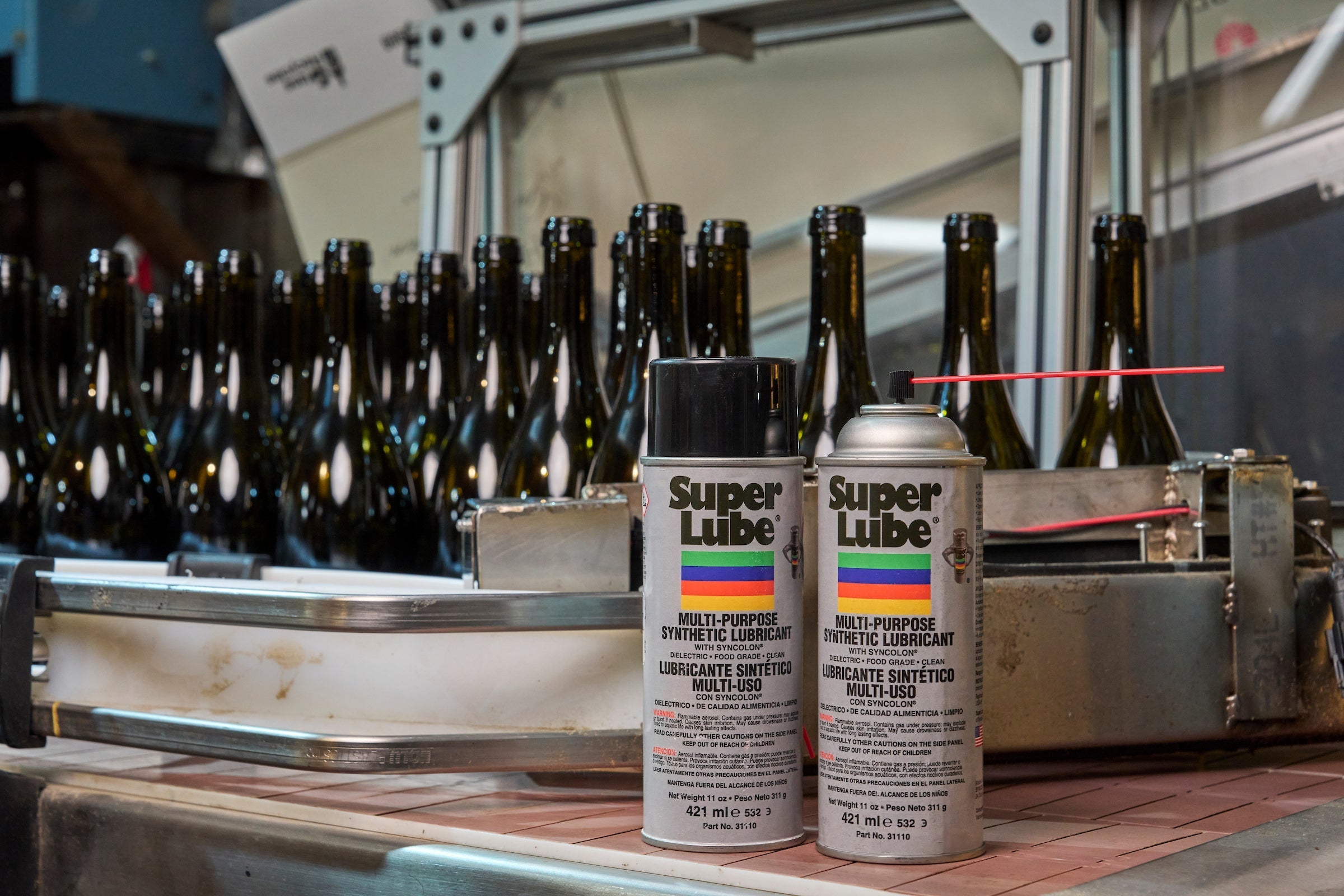Producing exceptional beer or wine takes more than just quality ingredients. Breweries and wineries rely on well-maintained machinery and clean, consistent processes to assure product quality and brand reputation. That’s where food grade lubricants come into play.
1. Enhancing Machine Efficiency
Whether you’re bottling craft beer or filling fine wine, the equipment is put under demanding conditions: pumps, conveyors, filling heads, gears and mixers all work hard. Food-grade lubricants minimise friction and wear on this critical machinery— keeping your lines running smoothly, reducing breakdowns and helping you meet production targets.
Without proper lubrication, overheating, unexpected stoppages or component failures can interrupt operations, causing delays and increased costs. Using the right lubricant helps you maintain throughput and keep your brand promise.
2. Improving Product Safety & Hygiene
In the beer and wine industry, hygiene is non-negotiable. Lubricants used around conveyors, bottling lines, capping machines, gearboxes, and valves must meet stringent standards because inadvertent contact with the product or packaging is a risk. Super Lube brings the following advantages to the game:
- Most of their products meet and exceed NSF guidelines for food-safe lubrication.
- Cleanliness is key so food-safe formulations keep equipment operating at peak performance, while ensuring clean and untainted workspaces
- Super-Lube highlight the NSF classes — H1 (incidental food contact), H2 (no food contact) and H3 (direct food contact) — which are critical to consider when choosing lubricants for breweries/wineries.
By selecting lubricants certified for food contact (or no contact, as appropriate), wineries and breweries give themselves a layer of assurance: less risk of contamination, fewer recalls and stronger trust from consumers.
3. Supporting Sustainability Goals
Brewers and winemakers are increasingly committed to sustainability. The choice of lubricants can support those goals: longer-lasting lubricants reduce waste, fewer servicing interruptions mean less energy and materials used for maintenance, and choosing biodegradable or food-grade certified products aligns with greener manufacturing practices.
Super Lube’s positioning emphasises one source of multiple solutions, helping optimise inventory and reduce complexity — which can also reduce needless waste and overhead.
4. Protecting Equipment Longevity
In a winery or brewery setting, replacing pumps, conveyors or mixers is expensive and causes downtime. Food grade lubricants protect sensitive equipment from wear under harsh conditions (moisture, cleaning cycles, temperature changes, alcoholic vapours). Proper lubrication leads to fewer replacements, less downtime, and lower long-term maintenance costs.
5. Boosting Production Consistency
For beer, consistency of flavour, carbonation, packaging appearance and quality is essential. For wine, consistency of bottling, corking, filtration, and preservation of aroma and taste profiles is equally important. Reliable equipment – supported by appropriate lubricant practices – means fewer mechanical surprises or deviations that could impact the finished product.
In short: whether you’re brewing beer or crafting wine, food grade lubricants are essential for preserving machinery, reducing contamination risks and supporting sustainable, efficient production. From the microbrewery to the boutique winery, choosing the right lubrication solution is a smart investment in your long-term performance and reputation.
If you’d like tailored advice for the wine or beer industry—choosing the right certification class, lubricant type, or service interval—our team at RR Fisher is ready to collaborate. You can find our range of Super Lube here or Contact us today to explore how the right lubricant strategy can elevate your production.

